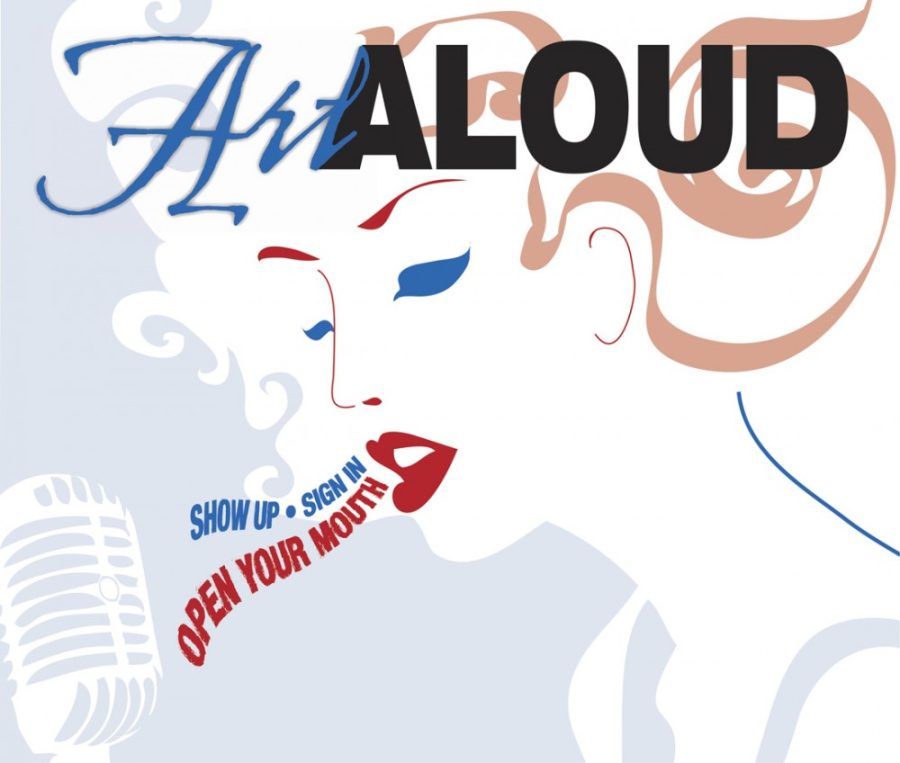When going to the doctor, one usually doesn’t expect to hear poetry. One would expect to hear original poetry from local poets even less.
Art Aloud is a spoken word event hosted by the College of Medicine — Tucson’s Medical Humanities program every month at Java City, inside the Arizona Health Sciences Library. Organized by Dr. Ron Grant, a pediatrician and director of Medical Humanities, the event boasts a creative intersection between the sciences and humanities.
“Art Aloud is an opportunity to bring some holistic care and human empathy into a space that, for students, doctors and patients, can sometimes begin to feel a bit sterile,” said Adam Sirgany, a creative writing graduate student who lead last Tuesday’s event in Grant’s absence.
“It’s a good opportunity for people to get the other sides of their brain working,” Sirgany added.
Sirgany said the performance Tuesday was one of the most heavily attended of the year, where poetry and medical enthusiasts celebrated the 10th annual release of the Medical Humanities magazine, Harmony. The library-style cafe was packed with administrative employees, doctors, students and some creative writing MFA candidates.
“Oftentimes there are a few more readers,” Sirgany said, “and many of them read from books that Dr. Grant or I bring in. Many of those are authors that Dr. Grant just has a love for, but many are fixated on ideas of medicine and the body.”
The poetry found within the walls of Java City usually relates to those themes, but Tuedsay’s event varied with poems by poets like Maya Angelou and CAConrad. Among those who spoke about science-related topics, however, was poet Evamaria Lugo, coordinator in research administration at the Arizona Health Sciences Center.
Lugo’s original piece titled “I know when people will die” — which appears in the 10th anniversary edition of Harmony — tells the story of a man Lugo met while waiting at a bus stop, who confided in her that he had the power of foreseeing the deaths of those around him.
Lugo’s conversation with the man centered around a curious dilemma of his regarding the ethics of informing the living of their imminent demise. Pondering the differences between terminal disease and the terminal nature of life, Lugo’s poem gives credence to those affected by mental illnesses through a careful and attentive tone.
“I was taught to see homeless people as human beings worthy of respect,” Lugo said before she read the poem.
Lugo was not the only one at Art Aloud who sought to benefit those living in poverty. Lydia Kennedy, coordinator of faculty development at the Office of Diversity and Inclusion, announced the program would sponsor a toy drive for Casa de los Niños, one of the first crisis nurseries for abused children in the nation.
The event closed out with a reminder that Dan Shapiro, the creator of the Medical Humanities department, will be giving a lecture in December on his new book, “Delivering Doctor Amelia: The Story of a Gifted Young Obstetrician’s Error and the Psychologist Who Helped Her.”
“It’s actually a non-fiction narrative about an obstetric gynecoloist who worked here at the UA,” Sirgany said, “and who, in the early years of her practice, made a very human error that lead to the death of a patient. The book itself follows the process of managing that grief, as well as the legal implications of that.”
Shapiro’s lecture will take place on Dec. 30 at the Poetry Center, Sirgany said.
The next Art Aloud event will be held on Dec. 16, from noon to 1 p.m., at Java City inside of the Arizona Health Sciences Library at the University of Arizona Medical Center. Everyone is welcome to attend, and those interested in poetry are encouraged to perform.
_______________
Follow Ian Martella on Twitter.









